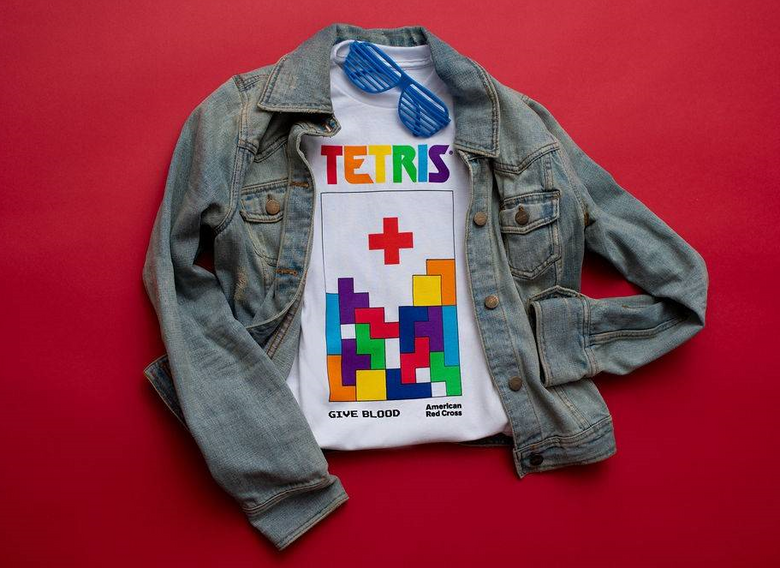The Red Cross and Tetris Team Up to Inspire Blood Donations
The Tetris effect
The American Red Cross is bringing back the nostalgia by teaming up with Tetris to celebrate the game’s 40th anniversary and inspire gamers, fans and blood donors alike to drop in, give blood, and help patients play on. Ensuring hospital patients receive the critical blood transfusions is the Red Cross end goal. However, without the help of volunteer blood donors—graciously giving of themselves to help others—its game over. (h/t VGC)
Visit RedCrossBlood.org to schedule an appointment to give blood May 20-June 9 for an exclusive Tetris® + Red Cross T-shirt, while they last! You’ll have to act fast though – this offer will max out soon! PLUS, automatically be entered for a chance to win a trip for two to New York to meet Tetris creator, Alexey Pajitnov!
“The Red Cross is thrilled to partner with a brand as iconic as Tetris to encourage the public to give blood, said Darren Irby, executive director of donors and sponsor marketing for the American Red Cross. “The cross-generational appeal of Tetris makes it a ‘perfect fit’ for us in helping to reach audiences young and more mature to encourage them to take action and roll-up a sleeve to help save lives.”
May is National Trauma Awareness Month. It serves as a reminder that life is unpredictable, and accidents happen every day—some of which require trips to the hospital and lifesaving blood transfusions. Blood types, like Tetriminos, are not all the same and can’t all be used interchangeably. For patients in need of lifesaving blood transfusions having the right blood product available, when they need it, is critical to their health. This couldn’t be truer for patients in need of emergency blood transfusions. Type O is routinely in short supply and in high demand by hospitals – both because it is the most common blood type and because type O negative blood is the universal blood type needed for emergency transfusions.
Its important to remember, blood cannot be manufactured and has a short shelf life which means that the nation’s blood supply must be constantly replenished. Receiving the wrong blood type can be life-threatening so it’s critical to have a robust and dedicated blood donor base to help ensure hospitals shelves are well stocked. Every two-seconds blood is needed in the U.S. to help accident and burn victims, heart surgery and organ transplant patients, and those battling cancer, sickle cell disease and other chronic illnesses.

Comments (0)